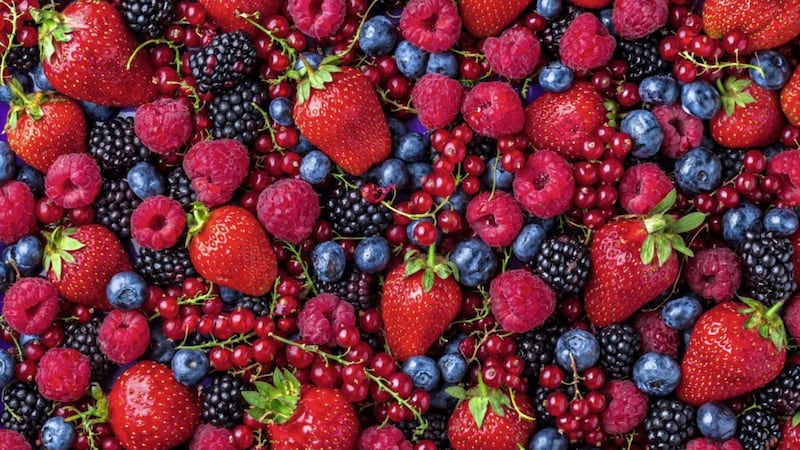BERRIES are nutritional powerhouses that deserve some space in your fridge this summer. Here's why:
1. BLUEBERRIES
"Blueberries are one of the most nutrient-dense berries going," says nutritionist Dr Emma Derbyshire, speaking on behalf of Love Fresh Berries (lovefreshberries.co.uk). "They contain fibre, vitamin C, vitamin K and manganese, and they also have one of the highest levels of antioxidants – specifically anthocyanins."
Antioxidant-rich foods are important to help protect your cells against free radicals – harmful molecules produced from things like pollution, sunlight, smoke and alcohol.
"In recent years, there has also been a growing body of science [suggesting] that berries could help to offset cardiovascular diseases and help to preserve heart health," says Derbyshire.
2. STRAWBERRIES
These heart-shaped fruits provide a pretty potent hit of vitamin C. "In fact, they contain more vitamin C than oranges," Derbyshire says. Seven will provide your recommended daily about of vitamin C. They also provide vitamin K, manganese, folic acid, potassium, riboflavin, vitamin B5, B6, copper, magnesium, fibre and phytonutrients.
3. RASPBERRIES
"Just one cup of raspberries contains 12 per cent of your recommended daily allowance of vitamin K, which is important for supporting healthy bones," says Derbyshire.
She adds that studies have indicated that regularly eating raspberries could help prevent and manage type 2 diabetes, by helping to reduce glucose levels after consumption.
"Ranked near the top of all fruits for antioxidant strength, raspberries are particularly rich in ellagic acid, quercetin and anthocyanins, all powerful antioxidants."
4. BLACKBERRIES
Eaten straight from the hand (or the hedgerow), there are loads of inventive ways you can add blackberries into recipes – whizz them into a smoothie, mash them to produce jam, or even stir them into a spinach and almond salad.
"Blackberries contain a wide range of nutrients, including vitamins C and E, beta-carotene, potassium and magnesium, as well as fibre and other plant nutrients that have numerous health benefits," says nutritionist Anita Bean.
She explains that blackberries are notable for their flavonoid content, the phytonutrients that give berries their deep colour, which have powerful anti-inflammatory properties and can play a role in supporting the immune system.



